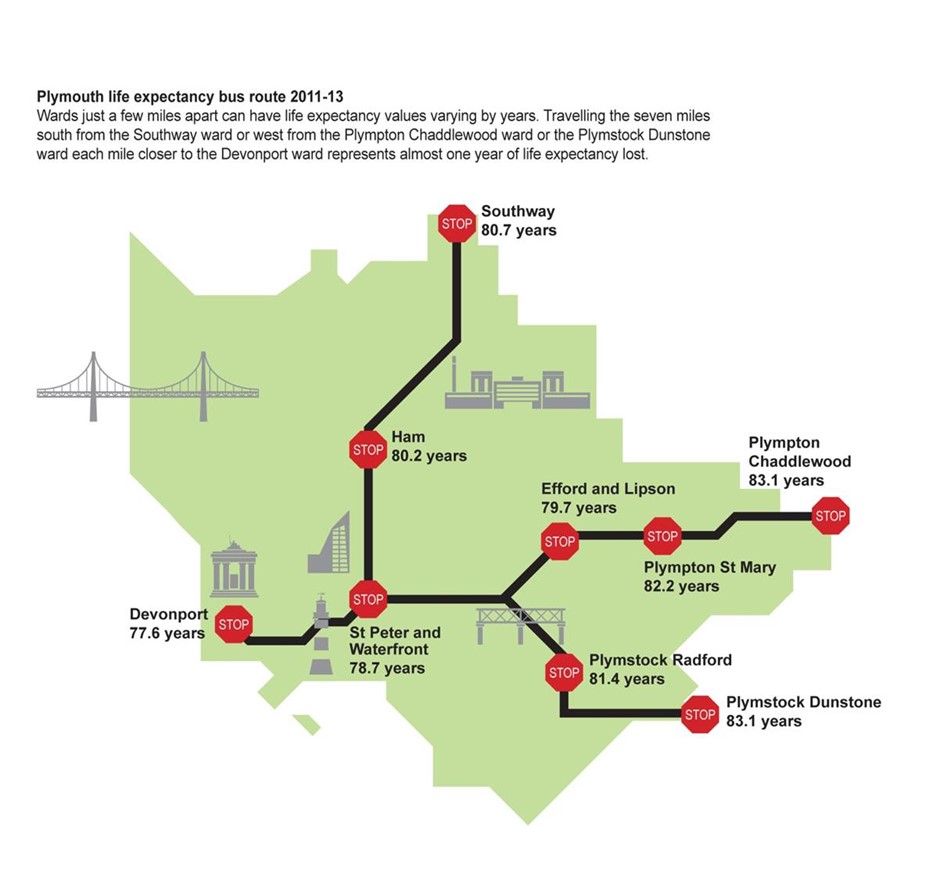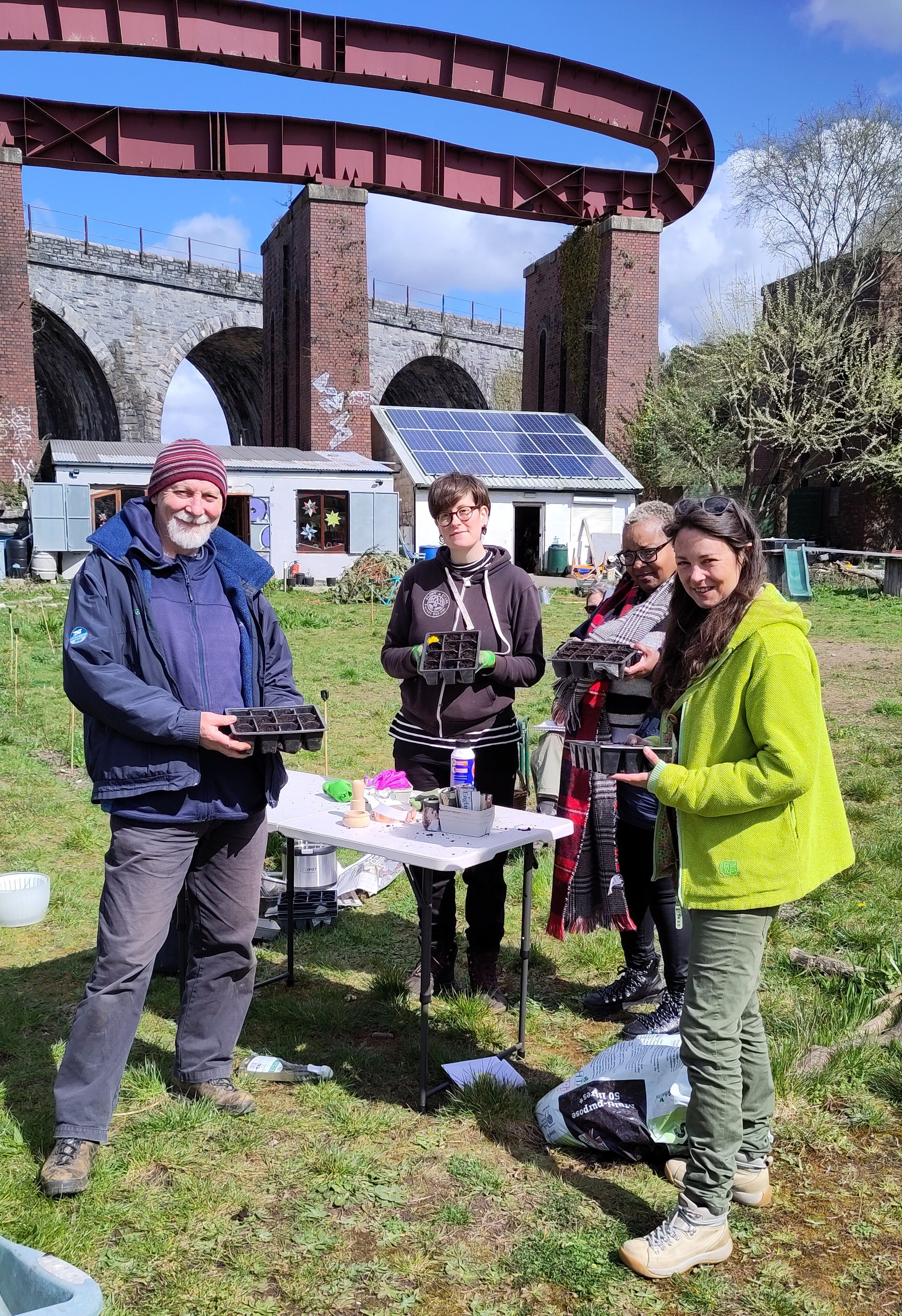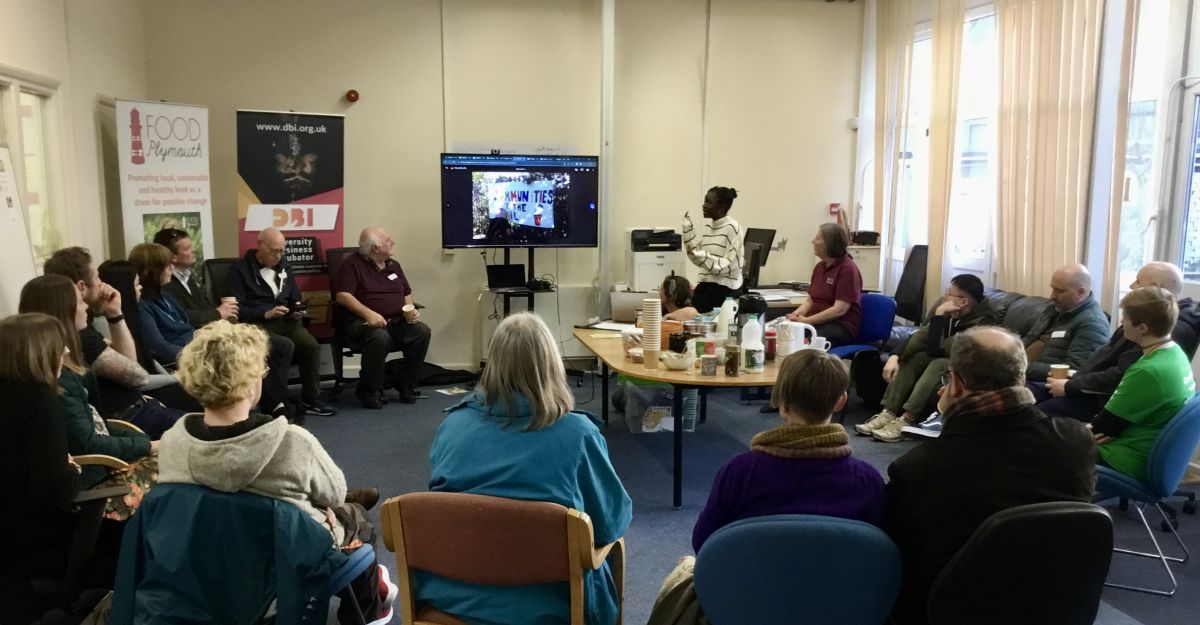
Dramatic public health inequalities in Plymouth
Ian explained that the origins of their food support collaboration lay before Covid, in the partnership working around Plymouth City Council’s ten year Thrive Plymouth programme to address the stark public health inequalities that lie across the city. Ian elaborated that there is about a seven-year average life expectancy discrepancy between the East and West sides of the city. He said, “it takes about 45 minutes on the bus to get from one side of the city to the other, and the differences in actual and healthy life expectancy are just extraordinary”. He went on to say that the West side of the city has some of the most deprived wards in the UK, and that within the more affluent East side of the city you also find pockets of deprivation. Plymouth City Council were aware of these dramatic inequalities, and therefore there was already a large amount of local government will get involved with supporting local food initiatives even before the need for emergency Covid support.

The Covid Crisis response morphs into community resilience strategies
During the Covid-19 pandemic, encouraged by Councillor Chris Penberthy, Food Plymouth won a lottery bid for emergency food aid coordination in collaboration with Plymouth City Council, which led to the emergence of their food support partnership. This has since morphed into their current Cost of Living Crisis response, that they anticipate will persist much longer. Their current focus points are food, fuel, financial, and digital matters, are all being handled by a multi-agency task force. Amongst which is Councillor Rebecca Smith, who has been leading on, and championing the work that they do.
Whilst they now have a multi-pronged approach, both Ian and Rachel recognised that the Covid-response itself, was perhaps not the best way to go in terms of building long-term resilience. They both stated that giving food away for free has its immediate benefits, of course, but that much like throwing money at a problem, also breeds bad habits and a lack of community resilience. Therefore, their original food aid coordination has now transformed into a mosaic of local intentional Community Development-type work, including the promotion of food growing projects, shopping and cooking workshops, food coop work, and cash first approaches, including citizens’ advice.

Islington’s Cooperation model
One example of this encouragement of the development of small residential projects has been modelled on Islington’s cooperation model. This model sees collectives of people working together on a residential level. Initiatives range from the creation of affordable food clubs to social supermarkets. Food clubs might be forming small cooperatives to buy, share, and distribute food bought in bulk, so that it becomes more affordable for individual households. Whilst social supermarkets might take the form of a business setting itself up as a community-interest cooperative or CIC.

A diverse group of community workers
When the city was focused on provisioning emergency food aid to those who were shielding or were medically vulnerable it was people who were self-identifying as in-need who came to collect support. Since the onus has shifted to the cost-of-living crisis and away from Covid, there has had to be a lot more reaching out into different communities to be in contact with the right people. By borrowing learning from the government-funded Changing Futures programme which works in a trauma-informed way with people with complex needs, Plymouth were equipped to recruit a diverse group of community workers known as “Community Builders” to be better embedded into various groups around the city. By reaching out more widely they have been able to connect to more people in need who would not necessarily put themselves forward as such, and link them into the food growing, shopping, and cooking workshops initiatives. Their aim is to take what is known as an Asset Based Community Development (ABCD) approach; identifying active people in different communities and working on their skills and strengths to support resilience in food and finance.
Maximising direct citizens’ advice and empowering people
Another facet of this shift in the demographic that Food Plymouth has been working with, has been the layering of services packaged up within food support. Here the Council saw an opportunity to multiply the types of support to those identified as in-need, by offering things such as income maximisation advice and energy advice to those coming to collect emergency food support. Moreover, rather than just providing emergency food, as was done during Covid, the approach has been adapted by recognising that there is more power in empowering people to be informed and in community. This is done by offering advice and pointing people to either start or join food clubs or cooperative supermarkets.
A structured and longer-term approach
By recognising the drawbacks of the Covid-food emergency provision effects, Plymouth have started investing in what they see as longer-term and more structured solutions, with a vision towards bringing in more focus on the sustainability of the food that is being made available to people. Two initiatives that Ian and Rachel were keen to share were encouraging people to grow their own via community growing projects, and the work of their partner Food is Fun. Whilst local growing projects are still in development, Food is Fun offers workshops on budgeting, preparing, and cooking nutritious food from scratch on a budget – things like “feed your family for £35 per week”. The grand vision is the development of a food alliance with sustainable local provisioning for local people at affordable prices, but that is still a little way away.